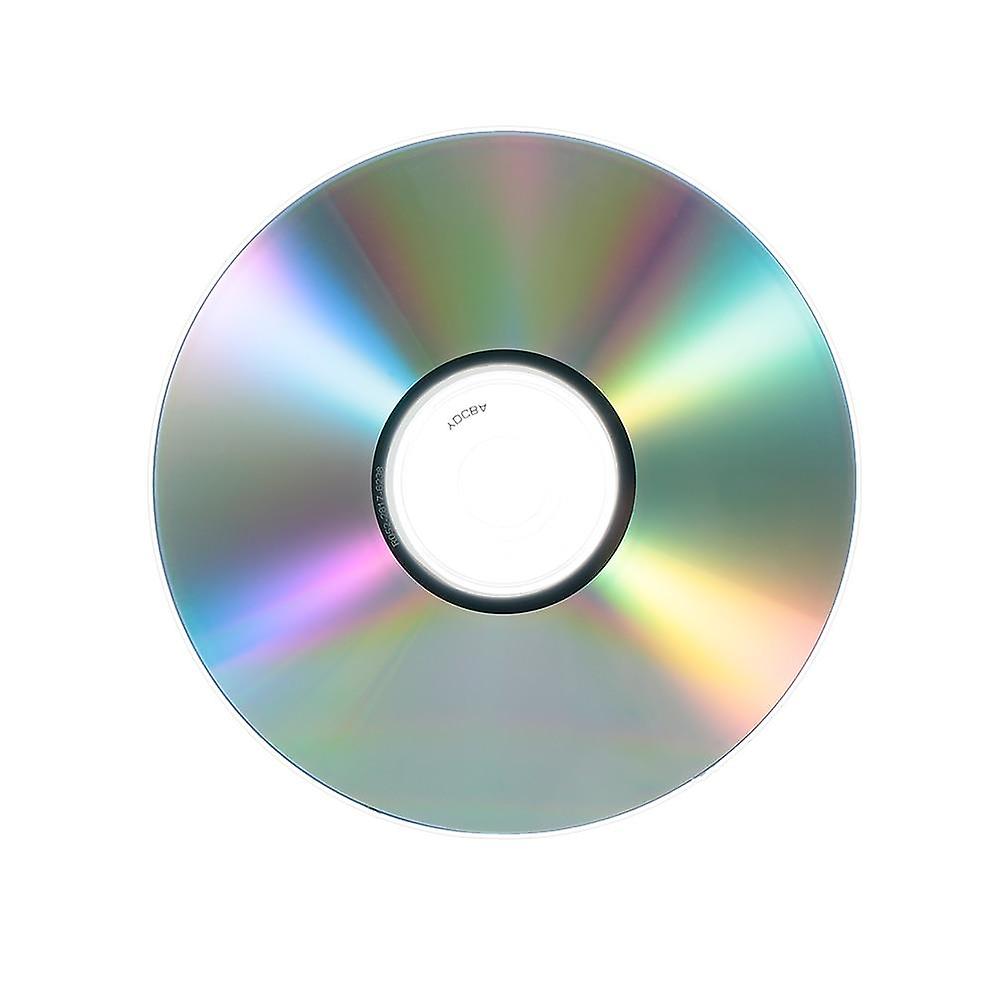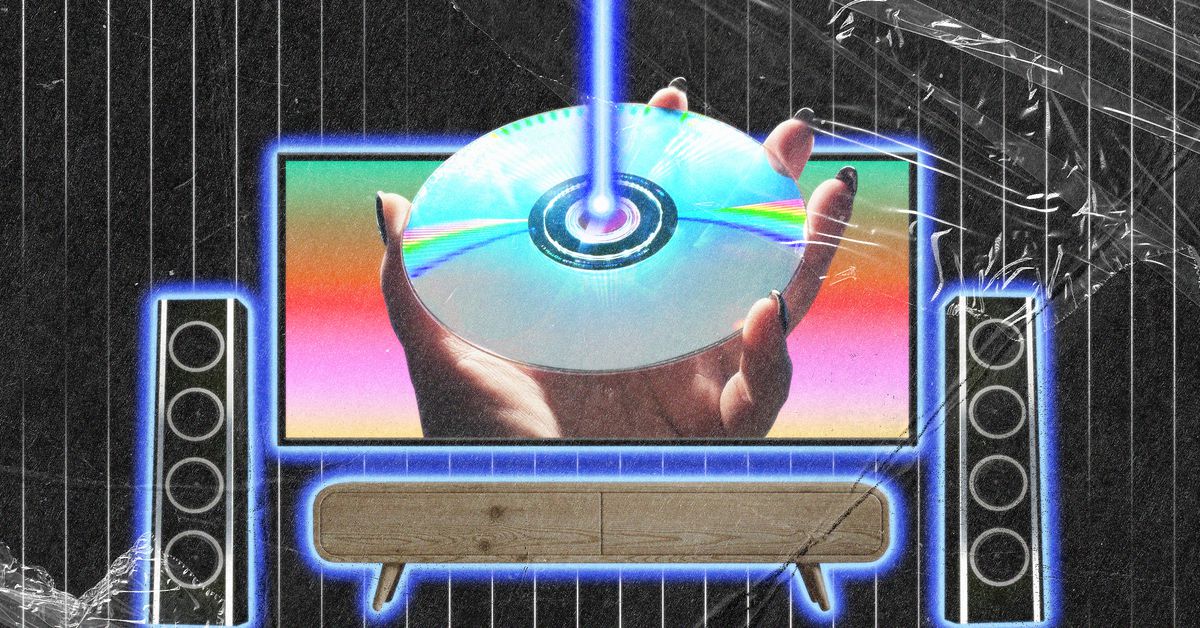A decade-plus into the streaming revolution, you’d be forgiven for thinking physical media has had its day. Late last year, Best Buy announced it would no longer be selling DVDs and Blu-ray, just months after Netflix got out of the disc rental market that kick-started its business. According to a 2021 report from the Motion Picture Association, global physical media sales more than halved between 2017 and 2021, falling from $14.9 billion in 2017 to $6.5 billion in 2021.
But more recently, 4K Ultra HD Blu-ray has been making headlines for a very different set of reasons. The 4K Blu-ray release of Christopher Nolan’s Oppenheimer promptly sold out at major retailers just weeks after its director stood onstage to proudly talk about the amount of care and attention that the team was putting into it. Aside from new releases, there’s also been a steady flow of older titles coming to the format. James Cameron is currently in the midst of rereleasing films including Titanic, Aliens, and The Abyss on 4K discs, and last year, Disney reissued Cinderella and Snow White and the Seven Dwarfs.
It’s probably too early to claim that 4K Blu-ray is leading a vinyl revival-style resurgence of physical media. But these headlines piqued my interest as someone who fondly remembers building a respectable DVD collection as a teenager. “It’s such a good time to get into it right now,” Jeff Rauseo, a YouTuber (who formerly published under the channel name “Films At Home”) who specializes in reviewing physical media releases, tells me. “It’s getting a lot of traction.”
…
Nolan suggests there are at least two different benefits to a 4K Blu-ray disc: AV quality and ownership. “I’m known for my love of theatrical and put a lot of effort into that, but the truth is, the way the film goes out at home is equally important to me,” the director said at a screening last year. “In the case of Oppenheimer, we’ve put a lot of care and attention into the Blu-ray version but also in particular the 4K UHD version and trying to translate the photography and sound that we formatted for the IMAX format, the 70mm releases, and putting that into the digital realm for a version that you can buy and own at home and put on a shelf so no evil streaming service can come steal it from you.”
…
What’s particularly nice about owning a 4K Blu-ray is the sense that it has a good chance of being the final physical release a film might get. Cas Harlow, AVForums’ lead 4K Blu-ray reviewer, doesn’t think he’s going to have to replace all his 4K Blu-rays with 8K discs anytime soon like he had to do with VHS, DVDs, and Blu-rays in the past. “If they do 8K you’re edging past what you can justify,” he says. “We’re talking about [4K Blu-ray] as being probably the end physical format, the final physical format.”
…
Aside from the objective benefits, the collectors I spoke to talked about having an almost emotional attachment to their discs. “There’s just something about human nature and collecting and just having a representation of who you are,” says Rauseo, who estimates he has around 2,500 movies in his collection, including roughly 600 4K Blu-rays.
That’s where smaller boutique Blu-ray labels have been able to carve out a niche for themselves with deluxe packages that can often include additional collectibles like books and art cards in the box. Harlow points toward Second Sight Films’ recent rerelease of The Texas Chain Saw Massacre as a key example of this trend. “What you’re getting there is a classic film that perhaps no one expected to hit 4K, let alone look great in 4K, that’s been given a loving and not controversial restoration and put in a lavish box set,” he says. According to market research firm Circana, the market for collector’s editions like these rose 85 percent to reach $80 million in the 12 months ending March 2023, and boutique label Arrow Films recently told Variety that its US sales increased 72 percent between 2020 and 2021.
The main issue is that streaming is so ephemeral and the rights are ever-shifting that you can never just subscribe to one and get the content you want. Even the content owned by those studios randomly gets axed and put away.
It’s just the obvious choice if you want access to your media long-term without needing to bullshit with some provider is to physically own copies of everything you care about, or at the very least have digital local copies if you’re broke like me.
You’re also guaranteed high quality when you source your own media, and you don’t have to pay a premium like you do with streaming services for that 4k/HDR/surround sound package that just comes with your disc out of the box.
Discs will always win with me for two reasons:
- It cant suddenly disappear when I want to watch it (well unless I lose it)
- I don’t care how good your streaming service is, if anywhere on the path burps and my quality drops it’s very jarring and yanks you right out of the movie. With a disc I’ll get the best quality all the time. If I want to rewind or fast forward I don’t have to wait for buffering.
I’ve been collecting a discography but also digitally archiving them. Almost guaranteed not to lose anything!
Not being beholden to the whims of streaming licenses and quality, as well as the physical artefact are key but I was slow moving to Blu-ray because it wasn’t a huge bump in quality and it always felt like a better format was coming. 4k is it, delivering a cinema quality experience and this feels like the apex for physical film media without requiring an expensive hardware upgrade. Granted we’ll eventually get holographic TV sets and direct-brain interface movies (although both would require a revolution in filmmaking too) but that all seems a long way off.
I sure like my Blu-Ray rips, so we should at least keep some around.
This is the best summary I could come up with:
The 4K Blu-ray release of Christopher Nolan’s Oppenheimer promptly sold out at major retailers just weeks after its director stood onstage to proudly talk about the amount of care and attention that the team was putting into it.
James Cameron is currently in the midst of rereleasing films including Titanic, Aliens, and The Abyss on 4K discs, and last year, Disney reissued Cinderella and Snow White and the Seven Dwarfs.
Even digital titles bought outright aren’t totally safe, as we saw when Sony threatened to pull Discovery content its customers had purchased through the PlayStation Store (even if it didn’t go through with it in the end) or the forthcoming shutdown of the Funimation app and website.
TV reviewer Vincent Teoh, of the YouTube channel HDTVTest, says he personally can’t tell the difference between a disc and a streaming service like Sony’s Bravia Core, which has a bitrate of up to 80Mbps.
John Clancy, who runs the Movie Collector YouTube channel, argues you really need a projector and a large screen to get the best out of a 4K disc and that, at regular TV sizes, the differences between physical and streaming can be “a little academic.”
But stepping up to a standalone model can come with advantages including support for standards like Dolby Vision and a nicer interface based around a traditional TV remote rather than a gamepad.
The original article contains 2,426 words, the summary contains 229 words. Saved 91%. I’m a bot and I’m open source!




